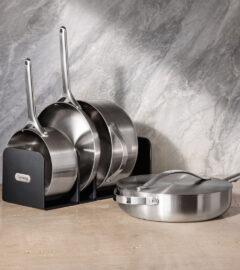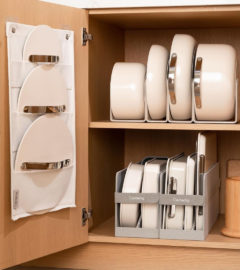Why do we make grocery shopping so unnecessarily complicated? Is it because we have a tendency to over-consume? Or is it because we lack proper planning? The truth is, without a concrete plan, it’s easy to get lost in several grocery aisles and fill up your cart with non-essential things. While it’s okay to splurge every once in a while, spending money on needless stuff week in week out will definitely hurt your budget in the long run.
The good news is that you don’t have to sacrifice delicious food just because you’re trying to save up. All it takes is a little planning, a bit of creativity, and tons of practice to make sure that your food budget is always on point. If you’re unsure where to start, here are a couple of surefire ways to effectively grocery shop while on a budget. Read on to find out more!
Plan your meals
Have you ever felt like there’s nothing to eat and it’s only Wednesday? Yup, we’ve all been there. Planning your meals is one of the most effective ways to save money on your groceries. The best part? Not only does meal planning help you save money, but it also saves you time from multiple grocery runs a week. Start simple by planning your meals for a couple of days and, when you get the hang of it, plan for the whole week. It’s amazing how much me time you can get when you’re not constantly thinking of what the next meal should be. With meal planning, you also avoid random urges to eat out or order in – saving you more moolah in the process.
Do an audit
After planning your meals for the week, it’s now time to do an audit. This should go without saying but it’s important to do an audit before even writing your grocery list. For instance, if you’re planning to make chicken noodle soup, check if you have pasta, carrots, and dry spices lying around. This gives you a chance to keep your grocery list tight and avoid ingredients that you already have. When it comes to saving money, it’s always a good idea to use up what you have before buying more!
Set a budget
If grocery shopping is hurting your wallet, then it’s time to rethink your budget. A proper budget plan ensures you have enough spending power for essential needs. Setting your budget works hand in hand with planning your meals as it gives you an overview of the ingredients that you need for every dish you’re planning to cook. Shopping with a specific budget in mind keeps you on your toes whenever you’re thinking of adding unnecessary things to your cart.
Stick to a list
Sticking to a shopping list offers a plethora of benefits other than just saving money. It saves time, avoids unnecessary buys, helps plan your meals, and minimizes waste. Having a list of to-buys means you’re less likely to succumb to unplanned purchases and gives you purpose instead of wandering aimlessly around the store.
Extreme couponing
There’s no such thing as being too extreme when it comes to couponing! Couponing is the practice of collecting coupons to purchase items at discounted prices. When it comes to grocery shopping on a budget, couponing is one of the best strategies to use as it lets you save a ton of money. It also makes you feel good knowing that you’re not paying full price for items that can otherwise be too expensive. While definitely time-consuming, couponing is a great way to save those extra bucks and it teaches you to better appreciate the value of money.
Buy bulk if possible
Okay, let’s take this tip with a grain of salt. While buying in bulk may save you a lot of money in the long run, the reality is that it’s not for every shopper. For instance, one of the greatest products you can buy in bulk is meat. However, buying meat in bulk would not make sense if you’re cooking for yourself or just for two people. Before considering which wholesale club to join, take a step back and check if it’s something that fits your current lifestyle.
Rethink snacks, alcohol, and sodas
It’s no secret that snacks, alcohol, sodas, and other junk can all add up to be such expensive purchases. These unneeded items can dramatically increase your grocery costs and may also prove to be detrimental to your health. Not only are you hurting your wallet with these non-essentials but you’re also risking your overall well-being.
Keep an eye on portion size
Households that pay attention to portion size can drastically decrease grocery costs. Properly portioning your meals also gives you an idea about the amount of food that you, and the people you cook for, consume on a regular basis.
Set aside money for “cheat” meals
Strictly budgeting your groceries can be extremely tiring for the palate especially if you don’t really know how to cook a variety of dishes. Fortunately, there’s a quick and easy fix for this problem: cheat meals! From time to time, set aside some money for cheat meals that would enable you to take a break from anything home-cooked. Having a cheat meal every once in a while gives you something to look forward to as you put in the work to prep your meals and stick to your budget.
Consider buying generic brands
One of the most underrated saving tips is buying generic brands. It doesn’t even matter if it’s food, cleaning items, or toiletries, store brands are usually less expensive and can save you a ton of money at checkout. If you’re worried about quality, we’ll let you in on a little secret: generic brands tend to be at least as good as their branded competitors. And it costs WAAAAY less!
And there you have it! We hope you found these grocery shopping tips helpful! Remember, grocery shopping doesn’t have to be difficult. Start by following a couple of our shopping tips and you’ll save so much time and money in the long run!




